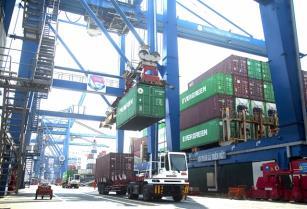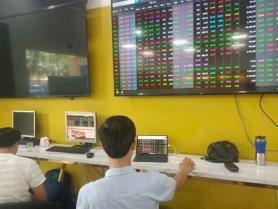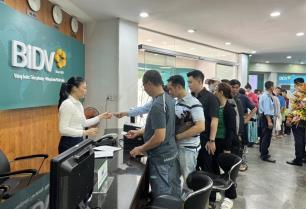August witnessed a notable outflow of funds from Vietnamese ETFs, with net withdrawals reaching VNĐ4.47 trillion (US$188 million), representing 19 per cent of the total net assets, the highest level since March 2024.

HÀ NỘI — The Vietnamese stock market is currently under significant pressure due to substantial capital withdrawals from exchange-traded funds (ETFs) and foreign investors as global investment trends shift.
Despite this challenge, analysts remain optimistic about the medium- to long-term outlook for the market, particularly regarding the potential for a market upgrade.
In a recent strategic report from SSI Securities, it was noted that August witnessed a notable outflow of funds from Vietnamese ETFs, with net withdrawals reaching VNĐ4.47 trillion (US$169.3 million), the highest level since March 2024.
However, the total net asset value of these ETFs still saw a slight increase, rising 6.46 per cent month-over-month and 9.09 per cent year-on-year to VNĐ66.4 trillion.
Since the beginning of the year, the total net withdrawal from ETFs has amounted to VNĐ12.6 trillion, with VNĐ3.7 trillion attributed to domestic ETFs and VNĐ8.8 trillion from foreign funds.
Domestic ETFs, which had previously attracted significant inflows in July, returned to a net withdrawal state in August, amounting to VNĐ1.9 trillion. Notably, the DCVFMVN Diamond ETF led this trend with a net outflow of VNĐ1.1 trillion, signalling a significant reversal compared to the previous month.
Foreign ETFs also experienced substantial net withdrawals, totalling VNĐ2.5 trillion in August. The Fubon FTSE Vietnam ETF recorded the largest outflow with VNĐ2.3 trillion while the Xtrackers FTSE Vietnam Swap UCITS ETF saw a net outflow of VNĐ78 billion.
On the stock market, investor sentiment remains cautious, with foreign investors exerting considerable selling pressure in August, resulting in a net selling value of VNĐ42.7 trillion, a contrast to the net buying of VNĐ8.5 trillion observed in June. Year-to-date, foreign investors have sold a total of VNĐ77.7 trillion, primarily focused on key sectors such as real estate, banking and information technology.
Despite these challenges, experts from SSI believe that the medium- and long-term prospects for the Vietnamese market remain positive.
Anticipation of a potential upgrade from FTSE and MSCI continues to be a significant driving force, alongside the expected double-digit GDP growth over the next five years and comprehensive institutional reform aimed at boosting the private sector.
Moreover, the recent introduction of new indices by the Ho Chi Minh Stock Exchange (HoSE), such as VN50 Growth and VNMITECH, could provide additional momentum. Analysts are optimistic that Việt Nam will soon see a resurgence of foreign capital inflows.
On October 7, FTSE Russell is set to release its classification report for national stocks, with Việt Nam currently classified as a frontier market and under consideration for an upgrade to emerging market status during this review.
According to HSBC's recent report, if FTSE upgrades Việt Nam with its current market capitalisation, the country could represent approximately 0.6 per cent of FTSE Asia and 0.5 per cent of FTSE Emerging Markets (EM). In this scenario, inflows from passive funds could total around US$1.5 billion, mainly from those tracking FTSE EM and FTSE Global ex US.
In the most optimistic scenario outlined by HSBC, the FTSE upgrade could potentially draw as much as US$10.4 billion in foreign investment to the Vietnamese stock market.
While the path to upgrade is promising, HSBC cautions that actual inflows may be more gradual and distributed over time, emphasising the need for ongoing monitoring of market conditions as these developments unfold. — BIZHUB/VNS





